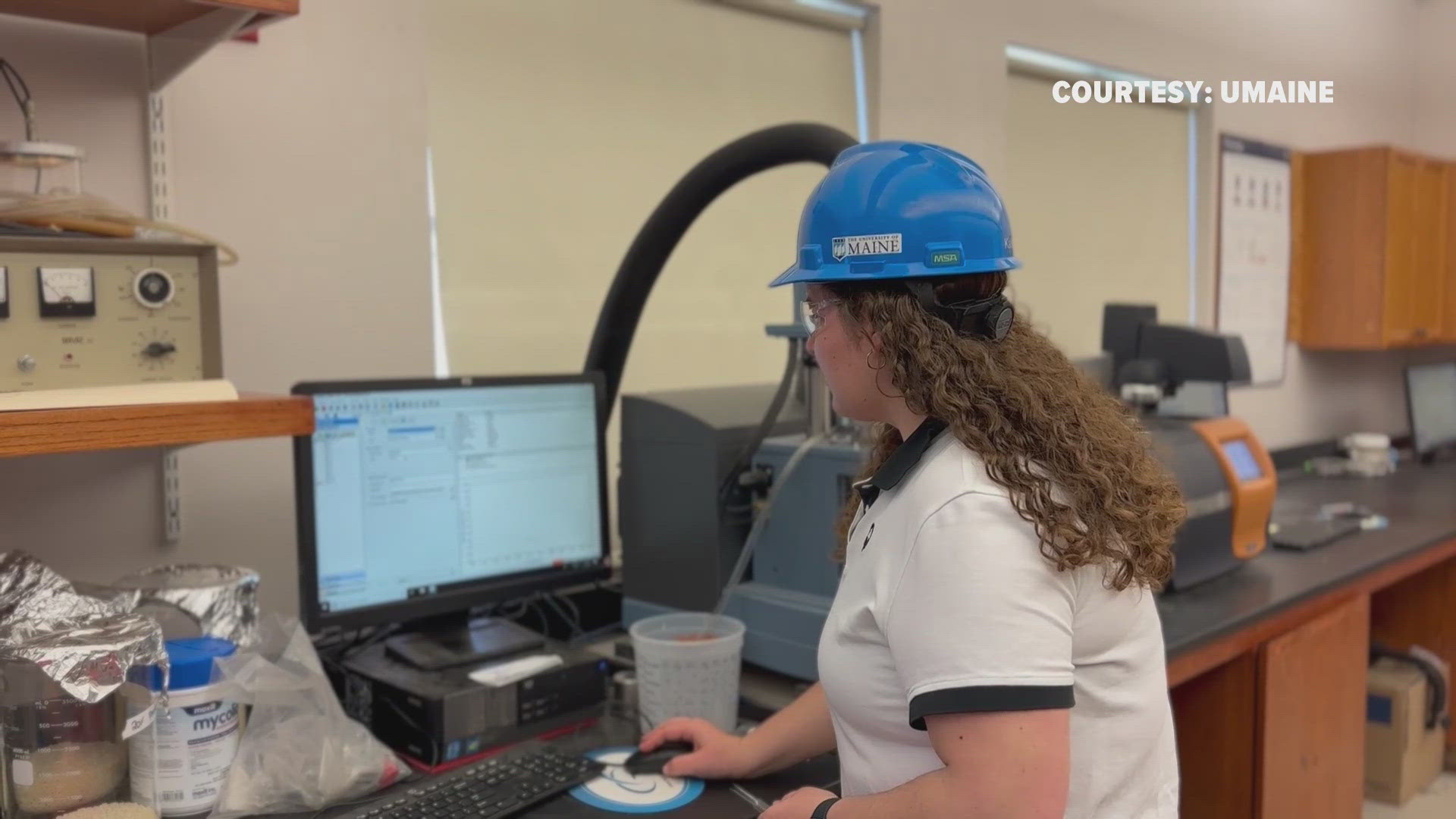ORONO, Maine — For decades, women were not welcome in STEM fields. But at the University of Maine, women are leading the institution with the hope of ensuring future generations don’t have to jump over the same hurdles they did.
In 1986, less than 10 percent of universities and colleges had female leaders, according to Pew Research. In 2022, that raised to 32.8 percent. However, in the University of Maine System, women lead three-quarters of its universities.
At the University of Maine in Orono, Dr. Joan Ferrini-Mundy leads as president. Long before she was leading a university, she was working to help young women.
"My research was about math learning. How can I help people learn it better," she said. "Particularly, how can we help women do better."
Ferrini-Mundy shares not just a mathematics background, but also the experience of an academic career while raising a family with Dr. Giovanna Guidoboni—the dean of UMaine’s College of Engineering and Computing.
When Guidoboni was pursuing her master's in engineering at the University of Ferrara in Italy, she was just one of five women in the program. Men outnumbered them 20-to-1.
"It was an unspoken feeling that you were not supposed to be there," Guidoboni said. "Today here we have over 20 percent that are women."
Having grown up in a small village in Italy, Guidoboni faced more than gender-based challenges. Rather than seeing her humble beginnings as a weakness, she views it as a strength and encourages others to also.
"To me, every one of us has a different background and a different story. And what we should be doing is really help nourish that," Guidoboni said.
Fostering that nourishment is a key part of the advancements that UMaine is taking under the leadership of Ferrini-Mundy and Guidoboni. This week—the final week of summer before the fall semester starts—is "bridge week" for the college's Research Learning Experience program.
The initiative is UMaine System-wide and is all about giving first-year students hands-on experience within their majors or a field of interest.
Courses range from arts to forestry to business and students continue their learning throughout the semester, focusing in on the fundamentals of research.
"For a student who wants to try out an interest of intrigue or creative development or of scientific research of some kind, they get the chance the minute they get here at the University of Maine," Ferrini-Mundy said.
The idea is that this experience shows students what is possible after graduation.
Helping mentor the incoming UMaine students is senior Eleanor Carrolton, who double majors in microbiology and molecular cellular biology.
She has found the faculty and community in Orono to be enabling.
"There is such a strong community of leadership at UMaine and people that are really willing to help you get where you want to go," Carrolton said.
Now looking at graduate school programs, Carrolton is considering continuing her mentoring work with a career in science education. She finds it that rewarding.
"Seeing that little flicker of excitement when people finally learn, 'Oh I can do this,' is so exciting, and seeing that confidence being built," Carrolton said.

